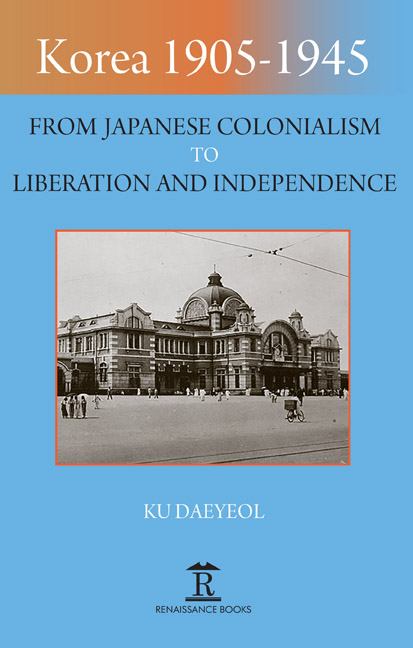Chapter 10 - British Korea Policy: Restoration of the Empire and the Korean Question
Published online by Cambridge University Press: 04 May 2022
Summary
BRITAIN's PRESENCE IN THE KOREAN QUESTION
WITH THE OUTBREAK of World War II in 1939, Britain had to greatly downgrade its presence in East Asia. As Hitler swept over Europe in the early stages of the war, Britain was completely on the defensive, and could not afford to take any initiatives in East Asian affairs. Worse, after December 1941, Britain found itself entangled in another arduous war against Japan. As a result, British colonies in East Asia fell to Japan in short order. On December 10, 1941, H.M.S. Prince of Wales, the state-of-the-art battleship on which Churchill and Roosevelt had declared the Atlantic Charter, was sunk off the coast of Singapore. On February 15 of the following year, Singapore, the fortress of the British navy in the East, was occupied by the Japanese army, and the British Empire reached its twilight in Asia after several decades of decline. As an ally of the United States, Britain was its most important partner in wartime talks, and was part of discussions regarding the Pacific campaign, although the United States virtually took sole charge of the war, even after Germany's surrender in May 1945. For Britain, having the United States as an ally was a guarantee of ultimate victory, something that led Britain to divert, with some composure, a certain amount of attention to East Asian affairs. Yet Britain's campaigns in the Asian region were limited to Southeast Asia, where its colonies were concentrated.
These were the circumstances under which Britain participated in the Korean question. China and the United States were responsible for the campaigns relating to the Korean peninsula, and Britain had scarcely any interest in them. Moreover, as there was no Korean group or refugee government within its territory, Britain was, compared with the United States or China, under far less public pressure regarding the Korean independence issue. Korean groups only asked that the status and aims of the Korean Provisional Government (KPG) be treated as “one of the refugee governments in Chongqing similar to the European refugee governments now in England.” This also meant that Britain was be able to remain relatively aloof from the Korean question.
- Type
- Chapter
- Information
- Korea 1905-1945From Japanese Colonialism to Liberation and Independence, pp. 309 - 339Publisher: Amsterdam University PressPrint publication year: 2021



